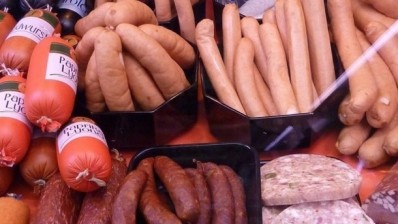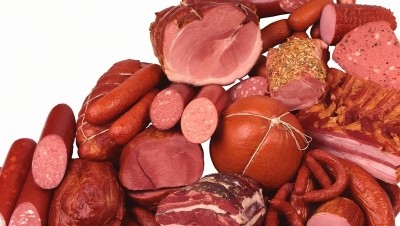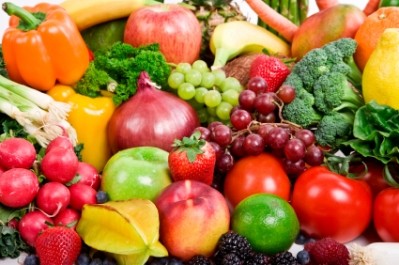Meat reduction: ‘Recommendations should no longer be based on health effects alone’

"Health benefits provide near term rewards to individuals for climate friendly changes and may thus 'nudge' humanity towards a sustainable future," the authors said. "Dietary recommendations should no longer be based on direct health effects alone."
Even ignoring UK food imports, the UK government’s target to cut greenhouse gas emissions (GHG) by 80% by 2050 is “unattainable” without cutting agricultural emissions, said the authors, citing the Committee on Climate Change.
Using dietary intake data from the National Diet and Nutrition Survey of British Adults, the researchers put forth “feasible alternatives” to current red and processed meat consumption levels, with calculations based on a doubling in the number of vegetarians, to 4.7% of men and 12.3% of women, and all other meat eaters cutting consumption to be in line with the lowest fifth of the population by consumption level.
This would mean cutting average red and processed meat consumption from 91 to 53 g a day for men and from 54 to 30 g for women. The fifth of the population who consumed the most red and processed meat ate about 2.5 times as much as those in the lowest fifth.
Reducing consumption by this amount across the UK would result in a 3 to 12% reduction in the risk of chronic diseases, like type 2 diabetes, bowel cancer and heart disease, the researchers found. And it would also reduce GHG emissions by about 0.45 tonnes per person each year, the equivalent of about 28 million tonnes of CO₂ – and 3% of the UK’s total GHG emissions.
The Cambridge University researchers modelled the reduction in disease risk on recent meta-analyses, which have suggested significant increases in risk of coronary heart disease, type 2 diabetes and colorectal cancer with increased intake of processed meat (risk increases of 42%, 19% and 18%, respectively, per 50 g increase per day). Another meta-analysis has linked red meat consumption to increased risk of colorectal cancer (17% per 100 g of red meat per day).
Figures estimating livestock’s contribution to global GHG emissions vary widely, from a proportion of about 10% to about 51%. The most commonly cited figure is the 18% indicated by the Food and Agriculture Organization (FAO) in a 2006 report called “Livestock’s Long Shadow” but there is considerable debate based on which parts of the production chain should be taken into account.
Source: BMJ Open
2012; 2:e001072 doi:10.1136/bmjopen-2012-001072
“Impact of a reduced red and processed meat dietary pattern on disease risks and greenhouse gas emissions in the UK: a modelling study”
Authors: Louise M Aston, James N Smith, John W Powles
























